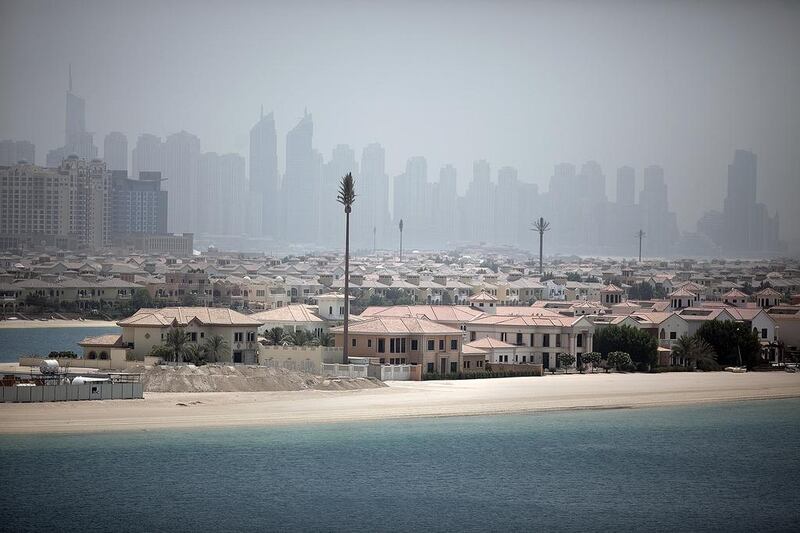I grabbed a coffee with a very shrewd property developer the other day. He has been involved in two of the biggest mixed-use projects in Dubai, and is on the verge of unveiling another one that will, by his own account, “provide a whole new dimension to the urban experience”.
I won’t say who he is because we were having a private chat, and anyway I wouldn’t want to steal his thunder for the big launch planned for the first quarter.
His confidence in the future of Dubai, and of the UAE, is food for thought. He is going ahead with the “new dimension” project, and moreover thinks it would be foolish to hold back on developments that are vital for the future now.
“How many people do you know who’ve been able to negotiate a rent reduction over the past couple of years? I can’t say I know one. Sure, some will have kept their rent at the same level for a while, and very nice that is too. But if you’re looking for evidence of a real estate crisis, I just don’t think it is there,” he said.
Even if, as he admitted, the sellers’ market has been through a different experience, with very firm evidence of falling prices, you have to admire his bravado and self-confidence. And the same, perhaps, could be said for the way the UAE is dealing with that other vital indicator of economic health: the oil price.
Kuwaiti economics firm Asiya Research made the point in these pages recently that the oil price really is the determining factor of economic well-being in the Arabian Gulf. Even with the global news frenzy last week over the US Federal Reserve’s “historic” move to raise its interest rate, the real significance for the regional economies was the continuing fall in oil prices.
“Liquidity is going to become even more scarce and expensive, but interest-rate increases provoked by the tightening cycle in the United States are not to be blamed. As usual in the Gulf, it’s about oil,” the Asiya analyst Francisco Quintana wrote. I bet he was tempted to add “stupid” to the end of that paragraph.
Another piece of research from a well-reputed firm, the Middle East team at Capital Economics in London, made the same point on a timely analysis a couple of days ago. “Cheap oil hits home” was the headline to the CapEcon report.
“The Gulf economies have weathered the storm created by the fall in oil prices well so far, but 2016 is likely to be the year in which low energy prices begin to weigh on growth. We don’t expect currencies to be devalued, but governments are paving the way to tighten fiscal policy,” the article said.
Countries across the Middle East face challenges, the oil importers as much as the oil consumers. Of the latter, Morocco and Egypt can expect some economic improvement, but Lebanon, Jordan and Algeria look set for stagnation.
In the GCC, the Saudi economy is likely to slow sharply next year as the government begins to cut back spending. Qatar too will slow, and Kuwait, Bahrain and Oman are likely to be “the worst performers in the Gulf”, according to CapEcon.
But closer to home, things are different. “Policymakers in the UAE have taken by far the boldest steps to adjust to low oil prices and these measures will weigh on growth in the near term. But the country’s diversified economy means that prospects remain among the best in the Gulf,” says CapEcon.
Sure, growth will slow in the UAE, with a spartan 2.5 per cent GDP increase forecast, and there are well-publicised plans to cut subsidies and introduce sales tax. But “the UAE is well placed to cope with a prolonged period of low oil prices as the country’s enormous savings mean current account and budget deficits (which in any case look set to be fairly small) could be financed for years to come,” says CapEcon.
The UAE has two bonuses missing elsewhere: the biggest potential to be gained from an opening up of Iranian trade; and the continued stimulus from big time-sensitive capital projects such as Expo 2020, and my friend’s “new dimension” project.
The UAE will slow down in light of the oil drop. But it cannot afford to slow down too much.
fkane@thenational.ae





